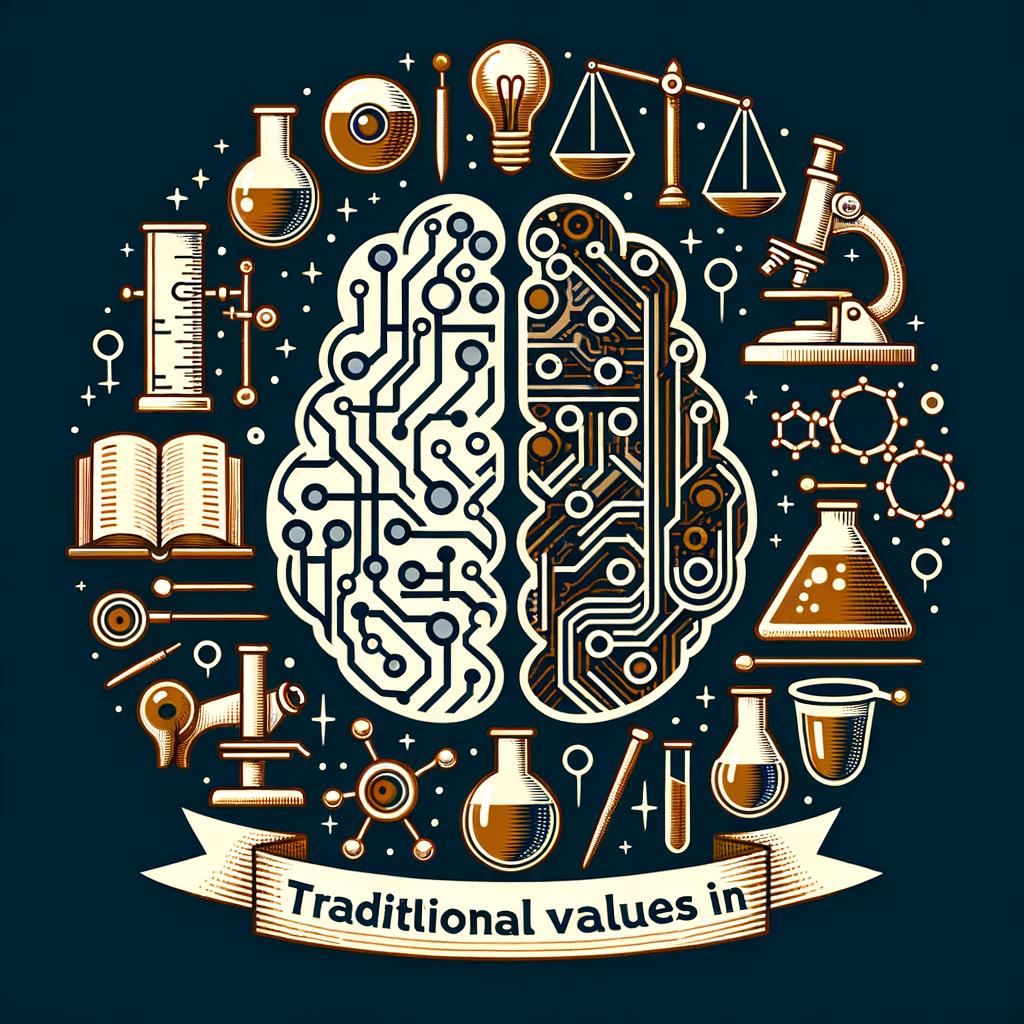In an era marked by rapid technological advancements, artificial intelligence (AI) is often portrayed as a driving force of change, perpetually reshaping industries and redefining the boundaries of human capability. However, amidst this whirlwind of innovation, there lies a compelling narrative about AI’s transformative potential—one that champions the preservation of traditional values in the realm of science. As we navigate the complexities of modern research, it is crucial to consider how AI can serve not merely as an agent of progress but as an ally in upholding the ethical, cultural, and methodological pillars that have long underpinned scientific inquiry. By fostering collaboration, enhancing transparency, and promoting inclusive practices, AI holds the promise of safeguarding the foundational principles that guide scientific exploration, ensuring that the quest for knowledge remains grounded in integrity and respect for diverse perspectives. This article delves into the multifaceted role of AI in reinforcing traditional values within the scientific community, arguing that the intersection of innovation and tradition can lead to a more holistic and responsible approach to scientific advancement.
As we navigate the complexities of modern scientific inquiry, the introduction of artificial intelligence presents a compelling opportunity to strengthen ethical standards within the research community. By harnessing machine learning algorithms and data analytics, researchers can uncover biases that may have previously gone unnoticed. This heightened awareness becomes crucial in ensuring that diverse cultural perspectives are represented and respected throughout the scientific process. The embrace of AI facilitates a more rigorous examination of methodologies, ultimately leading to practices that align more closely with traditional values and ethical norms that have long governed respectable research.
Moreover, AI serves as a tool for fostering cultural sensitivity across various scientific disciplines. By integrating local knowledge and indigenous perspectives into research frameworks, scientists can ensure their work resonates deeply with the communities they study. This approach not only enriches the scientific narrative but also honors the rich tapestry of beliefs and values that exist across cultures. Key elements of this integration might include:
- Community Engagement: Collaborating with local stakeholders to gather insights.
- Diverse Research Teams: Promoting inclusivity within research groups.
- Ethical Review Processes: Enhancing protocols to include diverse viewpoints.
| Benefits of AI in Ethical Research | Traditional Values Supported |
|---|---|
| Increased accountability in data interpretation | Transparency |
| Improved representation of marginalized voices | Inclusivity |
| Enhanced rigor in ethical reviews | Integrity |
Concluding Remarks
as we navigate an ever-evolving technological landscape, it is crucial to recognize that artificial intelligence, when harnessed thoughtfully, can serve as a powerful ally in preserving traditional values in science. By integrating the time-honored principles of ethics, accountability, and respect for human inquiry, AI can enhance our ability to innovate while remaining grounded in the foundational ideals that have guided scientific endeavor for centuries. It is imperative for researchers, educators, and policymakers to collaborate in creating frameworks that ensure AI enhances, rather than undermines, our commitment to these values. As we stand at the intersection of tradition and technology, let us embrace AI not as a replacement for our shared intellect and cultural heritage, but as a tool that complements and elevates it. By doing so, we can ensure that the future of science remains not only innovative but also deeply rooted in the principles that define our humanity. Join us in championing a future where tradition and technology work hand in hand to enrich our pursuit of knowledge and understanding.

Leave a Reply